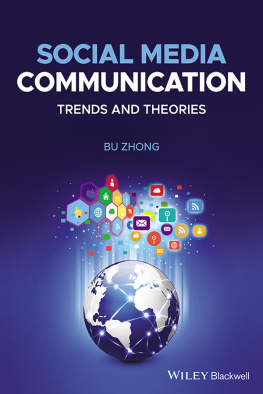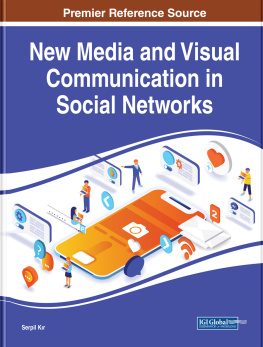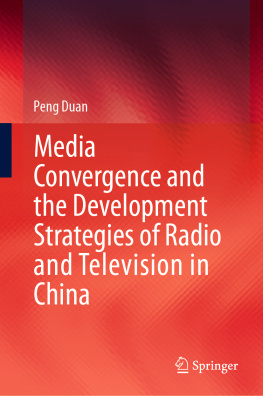
Communication and Community in the New Media Age
This book investigates the relationship between information communication and community development in China in the new media age, drawing on theoretical resources from journalism, communication, urban sociology, community management, and the activities of social movements.
Contrasting existing scholarship that centers on new technologies and virtual aspects of todays communication, the study highlights community residents daily praxis in real social spaces and the interaction between online and offline communications. Through content analysis, case studies, questionnaire surveys, and in-depth interviews, the author explores the social engagement of communication in public expressions and negotiations among Chinese urban communities. From micro, meso, and macro levels respectively, three interactive mechanisms are discussed: (1) media use and social consciousness and mobilization; (2) new media and changes in community governance; and (3) state-community interplay. Based on these mechanisms, the author proposes the idea of the construction of grassroots social communication, exploring approaches to the modernization of social governance and attainment of social interests by optimizing information communication.
Communication and Community in the New Media Age will appeal to academics and students studying communication and social transition in China, new media and society, urban sociology, and public governance.
Wang Bin is a Professor in the School of Journalism and Communication at Renmin University of China and the Deputy Director of the Public Opinion Research Institute. His research interests include media sociology, digital journalism, and urban communication.
China Perspectives
The China Perspectives series focuses on translating and publishing works by leading Chinese scholars, writing about both global topics and China-related themes. It covers Humanities & Social Sciences, Education, Media and Psychology, as well as many interdisciplinary themes.
This is the first time any of these books have been published in English for international readers. The series aims to put forward a Chinese perspective, give insights into cutting-edge academic thinking in China, and inspire researchers globally.
To submit proposals, please contact the Taylor & Francis Publisher for the China Publishing Programme, Lian Sun ()
Titles in media communication currently include:
Epistemology of News Frame
Wei Xiao
Immersive Communication
The Communication Paradigm of the Third Media Age
Li Qin
Communicative Cities and Urban Space
Scott McQuire, Sun Wei
Communication and Community in the New Media Age
Wang Bin
Convergent Journalism
Chinese Approaches
Bing Liu
For more information, please visit www.routledge.com/China-Perspectives/book-series/CPH
Communication and Community in the New Media Age
Wang Bin
The publication of this book is supported by Fund for Building World-class Universities (disciplines) of Renmin University of China.
First published 2021
by Routledge
2 Park Square, Milton Park, Abingdon, Oxon, OX14 4RN
and by Routledge
605 Third Avenue, New York, NY 10158
Routledge is an imprint of the Taylor & Francis Group, an informa business
2021 Wang Bin
The right of Wang Bin to be identified as author of this work has been asserted by him in accordance with sections 77 and 78 of the Copyright, Designs and Patents Act 1988.
All rights reserved. No part of this book may be reprinted or reproduced or utilised in any form or by any electronic, mechanical, or other means, now known or hereafter invented, including photocopying and recording, or in any information storage or retrieval system, without permission in writing from the publishers.
Trademark notice: Product or corporate names may be trademarks or registered trademarks, and are used only for identification and explanation without intent to infringe.
English Version by permission of China Renmin University Press.
British Library Cataloguing-in-Publication Data
A catalogue record for this book is available from the British Library
Library of Congress Cataloging-in-Publication Data
Names: Wang, Bin, 1981 author.
Title: Communication and community in the new media age / Wang Bin.
Other titles: She qu chuan bo lun. English.
Description: Abingdon, Oxon ; New York, NY : Routledge, 2021. |
Translation of: She qu chuan bo lun : xin mei ti fu quan xia de ju min she
qu gou tong ji zhi. | Includes bibliographical references and index.
Identifiers: LCCN 2020054738 (print) | LCCN 2020054739 (ebook) |
ISBN 9781032006864 (hardback) | ISBN 9781032008240 (paperback) |
ISBN 9781003175179 (ebook)
Subjects: LCSH: Local mass mediaChina. |
Communication in community developmentChina.
Classification: LCC P96.L622 C6393 2021 (print) |
LCC P96.L622 (ebook) | DDC 302.230951dc23
LC record available at https://lccn.loc.gov/2020054738
LC ebook record available at https://lccn.loc.gov/2020054739
ISBN: 978-1-032-00686-4 (hbk)
ISBN: 978-1-032-00824-0 (pbk)
ISBN: 978-1-003-17517-9 (ebk)
Typeset in Times New Roman
by Newgen Publishing UK
Contents
Since China entered a period of social transition, social interests have been reorganized and social contradictions frequently occur. In particular, in recent years when, because of the poor expression of peoples interests at the grassroots level and the weak governing ability of some grassroots officials, group events continue to emerge, giving rise to a series of issues affecting society. From the perspective of journalism and communication, the existing studies have focused on poor communication at the grassroots level and the relevant coping strategies. The former is conducted mainly by collecting, classifying, and summarizing the group events reported by the media and the hot events from network forums through content analysis. Great progress has been achieved, especially in the monitoring of and early warning regarding public sentiment revealed on the networks, using various in-depth methods. The latter is performed mainly by discussing the renewal of the concept of community media and the specific measures taken by the media and the government, and several studies have been conducted, especially on the media coverage of major emergencies, the communication of government crises, guidance of public opinions, press spokesman construction and other fields, which are very practical and well targeted.
In contrast, foreign research on the expression of network opinion pays more attention to the social situations when communication occurs. The basic idea of this research is to understand the real social and political life through the expression of networked opinions, in order to explore the role of network communication in enhancing public consciousness and participatory democracy (Kim & Ball-Rokeach, ).







